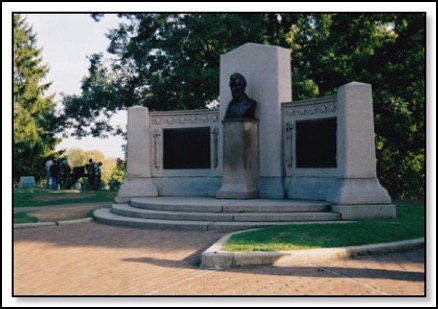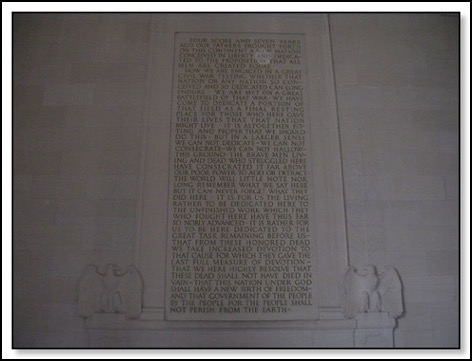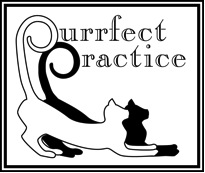Gettysburg Aftermath
06/07/13 08:58 Filed in: History
What followed Gettysburg? Armies retreating, burying the dead, tending to the injured. Lincoln attending a ceremony to honor the sacrifice of the dead soldiers and to deliver the Gettysburg Address. It was probably the most pithy and greatest speech ever given. We still consecrate those dead and remember 150 years later what happened on the ridges, dens, hilltops, and fields of Gettysburg.
Commemorative memorial to Lincoln at Gettysburg cemetery

Gettysburg Address engraved at the Lincoln Memorial

Battle of Gettysburg, Aftermath
On July 4, Lee started a 27-mile-long train of hospital wagons down the road to Virginia. His army halted at the flooded Potomac River and entrenched for another battle, but Meade’s army, too, was battered and exhausted and had consumed much of its ammunition. The Army of the Potomac did not pursue, for which Meade would be soundly criticized. He remained in command of that army for the rest of the war, even after Ulysses S. Grant was promoted to lieutenant general, placed over all Northern armies and attached himself to the Army of the Potomac. Lee offered his resignation to Confederate president Jefferson Davis, but it was refused and he, too, remained in command for the rest of the war.
Facts about the Battle of Gettysburg
Ammunition at Gettysburg: An estimated 569 tons of ammunition was fired during the three days of fighting.
Abraham Lincoln’s Gettysburg Address was delivered November 19, 1863, at the dedication of the “Soldiers’ National Cemetery” at Gettysburg. The speech was extremely short by the standards of the day and received scant notice at the time, but its concise, powerful wording has made it one of the best-known public addresses in all of history. Contrary to popular myth, Lincoln did not scribble the speech on the back of an envelope on his way to Gettysburg but wrote several drafts. The last bodies would not be retrieved from battlefield graves and reinterred in the cemetery until months after the dedication ceremonies.
John Buford, whose cavalry fired the first shots of the battle, died December 16, 1863. His death is thought to have resulted from typhoid fever and a body weakened by exhaustion. He received a deathbed promotion to major general, post-dated to July 1, 1863.
Civilians at Gettysburg were left to deal with the thousands of wounded. Homes and public buildings became hospitals, and diseases born of infection and unsanitary conditions made living in the town risky. Volunteers came from the North and the South, however, to aid in caring for the wounded, burying the dead, and piling and burning carcasses of horses and mules killed in the fighting.
During the battle, a random bullet went through the door of a house, striking and killing 20-year-old Mary Virginia (Jenny) Wade. She was the only civilian killed during the battle.
Commemorative memorial to Lincoln at Gettysburg cemetery

Gettysburg Address engraved at the Lincoln Memorial

Battle of Gettysburg, Aftermath
On July 4, Lee started a 27-mile-long train of hospital wagons down the road to Virginia. His army halted at the flooded Potomac River and entrenched for another battle, but Meade’s army, too, was battered and exhausted and had consumed much of its ammunition. The Army of the Potomac did not pursue, for which Meade would be soundly criticized. He remained in command of that army for the rest of the war, even after Ulysses S. Grant was promoted to lieutenant general, placed over all Northern armies and attached himself to the Army of the Potomac. Lee offered his resignation to Confederate president Jefferson Davis, but it was refused and he, too, remained in command for the rest of the war.
Facts about the Battle of Gettysburg
Ammunition at Gettysburg: An estimated 569 tons of ammunition was fired during the three days of fighting.
Abraham Lincoln’s Gettysburg Address was delivered November 19, 1863, at the dedication of the “Soldiers’ National Cemetery” at Gettysburg. The speech was extremely short by the standards of the day and received scant notice at the time, but its concise, powerful wording has made it one of the best-known public addresses in all of history. Contrary to popular myth, Lincoln did not scribble the speech on the back of an envelope on his way to Gettysburg but wrote several drafts. The last bodies would not be retrieved from battlefield graves and reinterred in the cemetery until months after the dedication ceremonies.
John Buford, whose cavalry fired the first shots of the battle, died December 16, 1863. His death is thought to have resulted from typhoid fever and a body weakened by exhaustion. He received a deathbed promotion to major general, post-dated to July 1, 1863.
Civilians at Gettysburg were left to deal with the thousands of wounded. Homes and public buildings became hospitals, and diseases born of infection and unsanitary conditions made living in the town risky. Volunteers came from the North and the South, however, to aid in caring for the wounded, burying the dead, and piling and burning carcasses of horses and mules killed in the fighting.
During the battle, a random bullet went through the door of a house, striking and killing 20-year-old Mary Virginia (Jenny) Wade. She was the only civilian killed during the battle.
blog comments powered by Disqus

